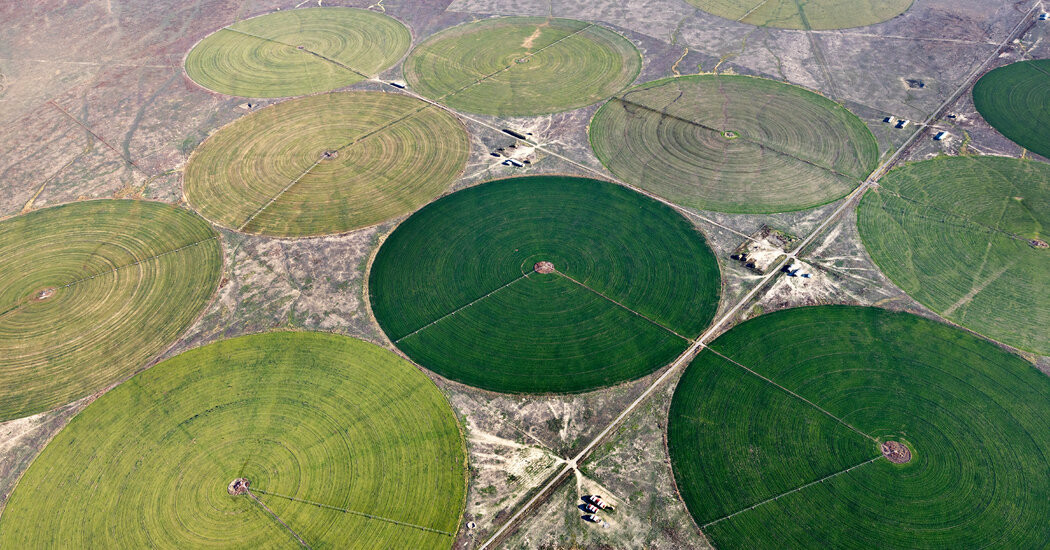

Higher temperatures caused by climate change are driving complex processes that make droughts bigger and more severe, new research shows.
Look down from a plane at farms in the Great Plains and the West and you’ll see green circles dotting the countryside, a kind of agricultural pointillism.
They’re from center-pivot irrigation systems. But some farmers are finding older versions, many built 10, 15 or even 20 years ago, aren’t keeping up with today’s hotter reality, said Meetpal Kukal, an agricultural hydrologist at the University of Idaho. “There’s a gap between how much water you can apply and what the crop demands are,” he said.
By the time the sprinkler’s arm swings back around to its starting point, the soil has nearly dried out. The main culprit? Atmospheric thirst.
“A hotter world is a thirstier one,” said Solomon Gebrechorkos, a hydroclimatologist at the University of Oxford. He led a new study, published on Wednesday in the journal Nature, which found that atmospheric thirst, a factor that fills in some of the blanks in our understanding of drought, over the last four decades has made droughts more frequent, more intense and has caused them cover larger areas.
In general, droughts happen when there’s an imbalance between water supply and demand.
Rain delivers water to the surface. The atmosphere removes water from the surface through evaporation, with temperature, wind, humidity and radiation from the sun controlling how much water is evaporated. It’s a complicated physical process that is hard to capture in models and, for a long time, studies of global droughts only focused on precipitation.
“It just really wasn’t detailed enough,” Dr. Gebrechorkos said, likening it to trying to balance a checkbook while only looking at income and leaving out expenses.


![Enjoy the [Road] Show Travel Mug with Handle, 14ozEnjoy the [Road] Show Travel Mug with Handle, 14oz](https://georgemagazine.com/wp-content/uploads/2024/08/479070202831754764_2048-300x300.jpeg)
